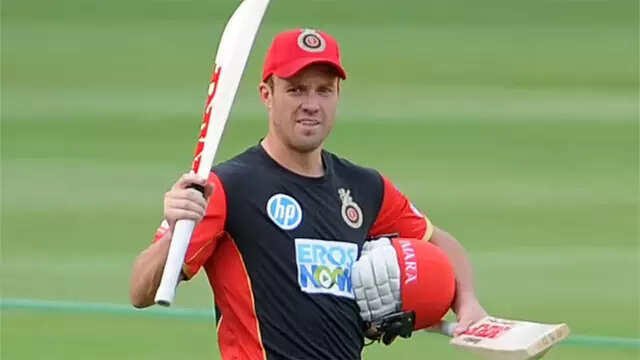
Former South African cricketer AB de Villiers provided the world of cricket much to think about when he spoke openly about his early days in Indian Premier League (IPL) cricket, especially while playing for the Delhi Daredevils (now Delhi Capitals). In the much-talked-about interview, he referred to it as a “tumultuous” setting and even spoke of having “a lot of poisonous characters” surrounding him. Though this sets the stage for an in-depth exploration of the dynamics of and culture within the team setting, leadership dynamics, and broader implications for franchise cricket professional sports culture, it does offer some insight into de Villiers’ view before fame.
Context
AB de Villiers played for Delhi Daredevils between 2008-2010, in the initial years of the IPL. Though he is one of the most talented batsmen of his generation, he lacked consistency in the initial seasons. The Daredevils had good players like Virender Sehwag, Gautam Gambhir, and Daniel Vettori, but never reached their full potential during those times. The team had a lot of turmoil with constant new coaches and poor performance, finishing fourth in 2008 and last in 2011.
De Villiers’ remarks helped shine a light on factors that may have been wrong behind the scenes; issues fans don’t usually see, but are critically important in influencing how a team performs.
De Villiers said:
“Yeah, there were a lot of big names and, unfortunately, also a lot of toxic personalities in that team. So, it was a difficult transition for my IPL career.”
He did not mention names, but these comments would seem consistent with previous reports of rifts and instability of leadership on the Daredevils during the late 2000s. There were a number of players, foreign players, who cycled through and the assessment is that management never created the environment for collaboration. This was a time in which the IPL was still trying to find its footing, thus franchises were able to observe the prospect of unique performance combinations and styles of management.
De Villiers referred to “poisonous characters” in a subjective way, and did not clarify precisely what he meant, forcing some interesting questions: Who? Players, coaches, management? Without further detail, the claim, while impactful, is anecdotal. However, when viewed together with the underperformance of the Delhi Daredevils and the success de Villiers achieved after moving to Royal Challengers Bangalore (RCB), what he said at least has some weight.
His meteoric rise in his community cricket career at RCB, with a fan following that loved him and consistent show of performances winning matches time and again, appears to reflect that he was successful in thriving in a healthy ecosystem with improved team chemistry.
Implication
This revelation pertains to greater than one player’s dilemma; it highlights how in-house team culture can impact player performance as well as team/ franchise success. It reminds us of the significance of mental well-being and emotional security in high-pressure situations, like the IPL.
When we think of franchise cricket, usually things like glamour, glitz, and big paychecks come to mind, but stories like de Villiers’ remind us that there are horrible workplaces even at the elite level of sport. For upcoming cricketers and young international recruits, this could be a cautionary tale about how team dynamics and leadership can be seriously corrosive.
Furthermore, this comment may encourage currently existing IPL franchises to focus on dressing room politics and team organizational structures. As cricket in modern T20 leagues has changed to high stakes with how substantial currents of investment exist, the importance of culture may be equally or more important than actually having a high-scoring batter.
Considering Multiple Perspectives
Although de Villiers’ account is significant, we must acknowledge that other players from the same Daredevils team may have had alternate experiences. For example, the local lads Sehwag and Gambhir were thriving during this time. So, it may not just be about cultural and communicative differences amongst foreign and Indian players, or a matter of overseas players being mismanaged, that contributed to their dissatisfaction.
Moreover, the changing nature of IPL franchises is now evolving sports psychologists, player development teams, more former cricketers in advisory roles; a possible change in response to earlier advice that indicated mismanagement.
AB de Villiers’ remarks provide an insightful glimpse of the softer, yet compelling aspect of franchise cricket, the outside environment of a team’s inner weather. Even though his remarks were subjective and poor in terms of content, they were connected to a trend of subpar performance and instability in the early years of the Delhi Daredevils. The analysis prompts some interesting questions regarding the significance of leadership, team culture, and interpersonal relationships in attaining outcomes of success or failure within the high-stakes environment of the IPL.
As the league continues to develop in global importance, it becomes even more vital for franchises to create inclusive, transparent, and supportive environments. De Villiers’ story is a reminder that it takes more than just talent; even a player’s career can be made or broken by the environment in which they play.
Keep reading Spacesportz

More Stories
World Cup Drama: Iran’s Team Faces Uncertain Future Amid Conflict
Ireland Dominates Malaysia with 5-0 Victory in Chile World Cup Qualifier